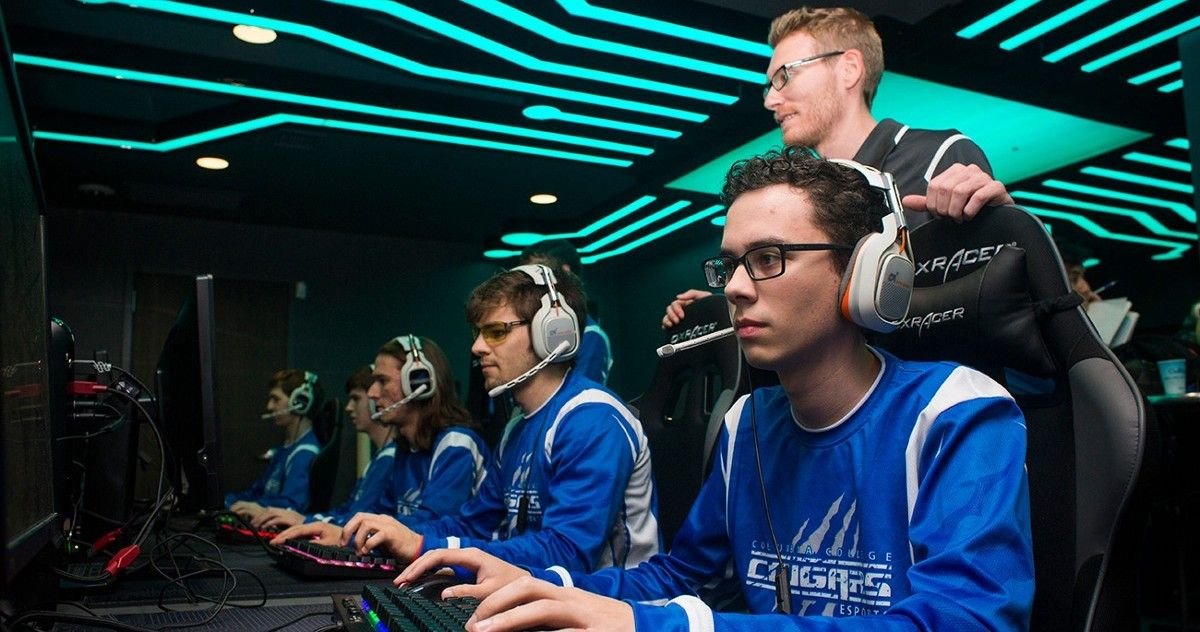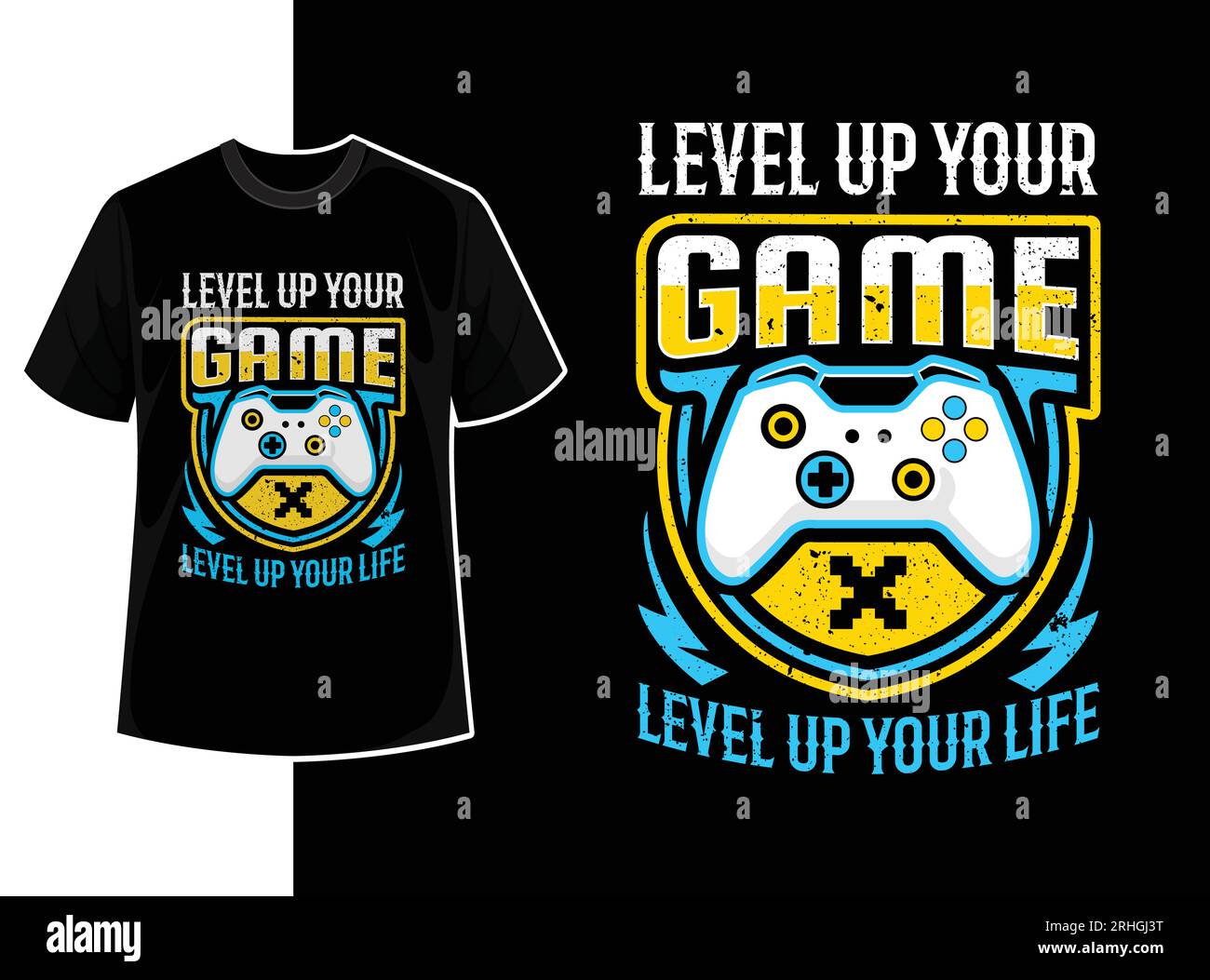
Level Up Your Life: Finding Support for Gaming Addiction
Related Articles
- How to Play the Game Fall Friends
- Cashing In On Creativity: How To Sell Game Assets And Maximize Profits
- Game Streaming Tax Advice: What Streamers Need To Consider
- How to Play the Game Color Bump 3D: A Comprehensive Guide for Masterful Gameplay
- How to Play the Game Clash of Cars: A Comprehensive Guide for Beginners
Introduction
Uncover the latest details about Level Up Your Life: Finding Support for Gaming Addiction in this comprehensive guide.
Level Up Your Life: Finding Support for Gaming Addiction

We’ve all been there. Lost in the digital world, time melting away as we conquer virtual challenges and forge online friendships. For some, this immersion becomes a source of joy and connection. But for others, the line between entertainment and obsession blurs, leading to a complex and challenging condition known as gaming addiction.
If you’re struggling with gaming addiction or concerned about a loved one, you’re not alone. Millions grapple with this condition, experiencing a range of negative consequences in their personal, social, and professional lives. The good news is that help is available, and support groups play a crucial role in the journey towards recovery.
This article will guide you through the world of gaming addiction support groups, exploring their benefits, types, and how to find the right fit for your needs. We’ll also delve into the complexities of gaming addiction itself, understanding its causes, symptoms, and the impact it can have on individuals and families.
Understanding the Beast: Gaming Addiction and its Grip
Gaming addiction, formally known as Internet Gaming Disorder (IGD), is characterized by an inability to control gaming behavior, leading to significant distress and impairment in various aspects of life. It’s not simply about spending excessive time gaming; it’s about the compulsive nature of the behavior and its negative consequences.
Signs of Gaming Addiction:
- Loss of Control: Difficulty stopping or limiting gaming sessions, even when intending to.
- Withdrawal Symptoms: Feeling restless, irritable, or anxious when not gaming.
- Tolerance: Needing to spend more time gaming to achieve the desired effect.
- Neglecting Responsibilities: Prioritizing gaming over work, school, or other essential commitments.
- Social Isolation: Withdrawing from friends and family to spend more time gaming.
- Lying and Deception: Hiding the extent of gaming activity from loved ones.
- Financial Problems: Spending excessive amounts of money on gaming, sometimes leading to debt.
- Physical Health Issues: Experiencing sleep deprivation, eye strain, repetitive strain injuries, and weight gain due to sedentary behavior.
- Emotional Distress: Feeling depressed, anxious, or hopeless due to the impact of gaming addiction.

The Roots of Addiction: Exploring the Causes
While the exact causes of gaming addiction are multifaceted and not fully understood, several factors contribute to its development:
- Personality Traits: Individuals with certain personality traits, such as impulsivity, sensation-seeking, and a tendency towards perfectionism, may be more susceptible to addiction.
- Mental Health Conditions: Preexisting conditions like depression, anxiety, and attention-deficit/hyperactivity disorder (ADHD) can increase the risk of developing gaming addiction.
- Social and Environmental Factors: Peer pressure, social isolation, and lack of social support can contribute to gaming addiction.
- Game Design: Certain game mechanics, such as reward systems, progression mechanisms, and social features, can be highly addictive.
- Personal History: Past experiences of trauma, abuse, or neglect can increase vulnerability to addiction.
The Impact of Gaming Addiction: A Ripple Effect
Gaming addiction doesn’t exist in a vacuum. It has far-reaching consequences that affect individuals, families, and society at large:
- Personal Impact: Gaming addiction can lead to a decline in academic performance, job loss, relationship breakdown, and physical health issues. It can also contribute to feelings of shame, guilt, and low self-esteem.
- Family Impact: Gaming addiction can strain relationships with family members, leading to conflict, resentment, and financial hardship. It can also create a cycle of enabling behavior, making it harder for individuals to seek help.
- Societal Impact: Gaming addiction can contribute to social isolation, decreased productivity, and increased healthcare costs. It can also raise concerns about the potential for violence and criminal activity.
Navigating the Path to Recovery: The Power of Support Groups
Recognizing the severity of gaming addiction and its impact on multiple aspects of life is the first step towards recovery. Seeking professional help is crucial, but support groups offer a valuable complement to therapy and other treatment modalities.
The Benefits of Gaming Addiction Support Groups:
- Shared Understanding: Connecting with others who have experienced similar struggles provides a sense of validation and reduces feelings of isolation.
- Emotional Support: Support groups offer a safe space to share feelings, fears, and frustrations without judgment.
- Practical Strategies: Members share coping mechanisms, relapse prevention techniques, and resources that have helped them in their recovery journeys.
- Accountability and Motivation: Regular attendance and interaction with other members can foster accountability and provide motivation to stay on track with recovery goals.
- Community Building: Support groups create a sense of belonging and community, fostering a supportive network of individuals who understand the challenges of addiction.
Types of Gaming Addiction Support Groups:
- In-Person Groups: These groups meet regularly at designated locations, allowing for face-to-face interaction and building stronger connections.
- Online Groups: Virtual support groups offer accessibility and convenience, allowing individuals to participate from anywhere with an internet connection.
- Specialized Groups: Some groups focus on specific demographics, such as young adults, parents, or individuals with co-occurring mental health conditions.
- Therapist-Led Groups: These groups are facilitated by licensed therapists who provide guidance, support, and therapeutic interventions.
Finding the Right Fit: A Guide to Locating Support Groups
Finding the right support group can be crucial for a successful recovery journey. Here’s a step-by-step guide:
- Online Research: Start by searching online for gaming addiction support groups in your area or online. Websites like the National Alliance on Mental Illness (NAMI), the American Psychological Association (APA), and the Substance Abuse and Mental Health Services Administration (SAMHSA) are excellent resources.
- Community Organizations: Contact local community organizations, such as mental health centers, hospitals, and addiction recovery centers, to inquire about support groups.
- Online Forums and Communities: Explore online forums and communities dedicated to gaming addiction recovery. These platforms often have dedicated sections for support groups or provide links to relevant resources.
- Social Media: Utilize social media platforms like Facebook and Twitter to search for gaming addiction support groups in your area or online.
- Word of Mouth: Ask friends, family, or healthcare providers for recommendations of support groups they may be aware of.
- Consider Your Needs: When evaluating potential support groups, consider factors such as:
- Location and Time: Ensure the group meets at a convenient location and time.
- Group Size and Format: Some individuals prefer smaller, more intimate groups, while others thrive in larger, more dynamic settings.
- Focus and Approach: Choose a group that aligns with your specific needs and recovery goals.
Beyond Support Groups: A Holistic Approach to Recovery
Support groups are an essential component of recovery, but they are not a standalone solution. A comprehensive approach involves:
- Therapy: Individual therapy with a qualified mental health professional can address underlying mental health issues, develop coping mechanisms, and provide personalized support.
- Medication: In some cases, medication may be prescribed to address co-occurring conditions like anxiety or depression.
- Lifestyle Changes: Modifying lifestyle habits, such as improving sleep hygiene, engaging in regular exercise, and maintaining a healthy diet, can contribute to overall well-being and reduce the risk of relapse.
- Family Therapy: Family therapy can help address communication issues, provide support to loved ones, and create a more supportive home environment.
The Journey of Recovery: A Path of Growth and Transformation
Recovery from gaming addiction is a journey, not a destination. It requires commitment, perseverance, and a willingness to embrace change. Support groups play a vital role in this process, providing a lifeline of understanding, support, and hope.
Remember: You are not alone. There are resources available to help you navigate this challenging journey. Seek professional help, connect with support groups, and believe in your ability to overcome gaming addiction and reclaim your life.
Source:
- National Institute on Drug Abuse (NIDA): https://www.drugabuse.gov/publications/drugfacts/internet-gaming-disorder
Closure
We hope this article has helped you understand everything about Level Up Your Life: Finding Support for Gaming Addiction. Stay tuned for more updates!
Don’t forget to check back for the latest news and updates on Level Up Your Life: Finding Support for Gaming Addiction!
Feel free to share your experience with Level Up Your Life: Finding Support for Gaming Addiction in the comment section.
Stay informed with our next updates on Level Up Your Life: Finding Support for Gaming Addiction and other exciting topics.


